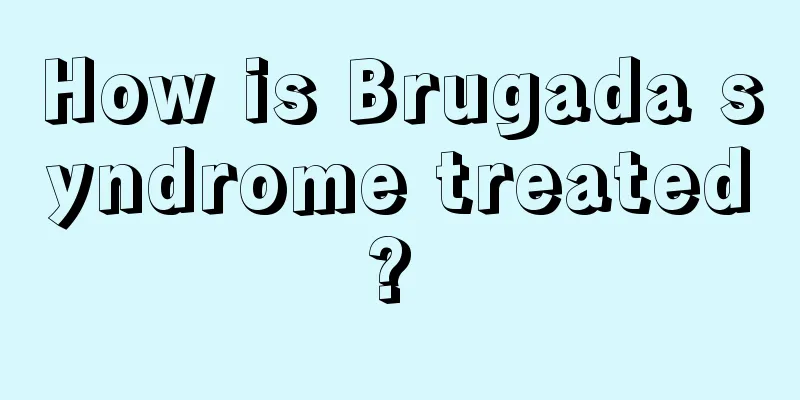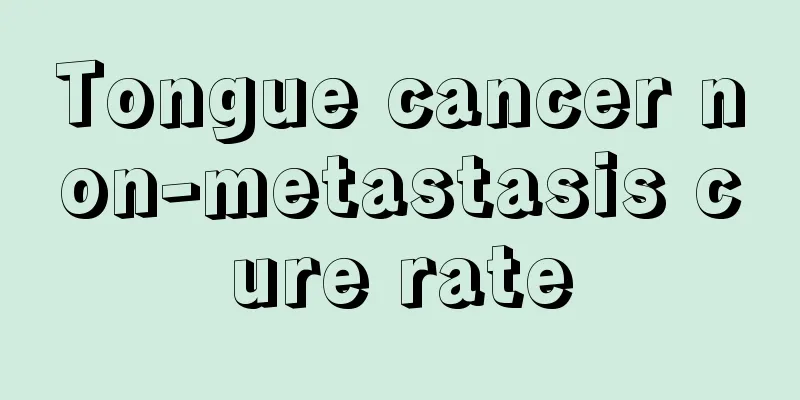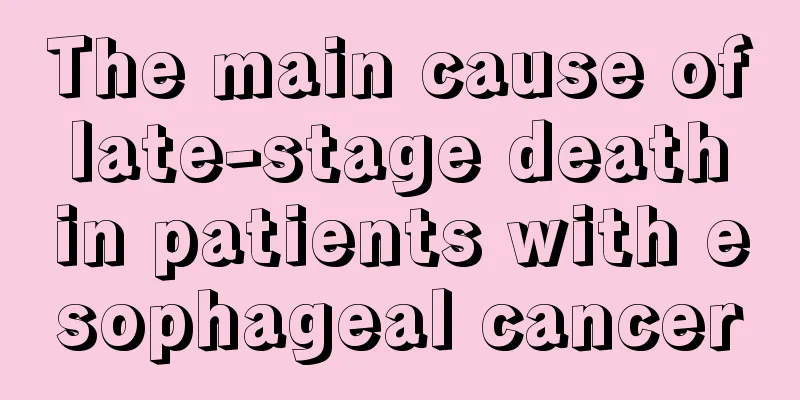How is Brugada syndrome treated?

|
Brugada is a disease that is difficult to diagnose. Many patients are unable to get a diagnosis even after they feel the disease occurring. This will only delay their condition, and they can only alleviate the symptoms through some auxiliary treatment measures. At present, even after being diagnosed, there is no good treatment method for the recovery of this disease. Therefore, many patients are unable to receive rehabilitation treatment after this happens. treat 1. Non-drug treatment (1) ICD treatment is the only method that has been proven to be effective for the treatment of Brugada syndrome. There is a consensus that patients who have experienced sudden death, syncope, or precursors to sudden death do not need to undergo electrophysiological examinations and all need implants for secondary prevention. (2) Radiofrequency ablation: In recent years, it has been observed that ventricular tachycardia in Brugada syndrome is triggered by premature ventricular beats with short coupling intervals. However, there are still few cases accumulated using this method. (3) Pacemaker therapy: Given that sudden death and syncope in patients with Brugada syndrome often occur at night when the heart rate is slower, and electrocardiograms can also confirm that patients often have bradycardia during syncope, these patients may be treated with pacemakers to eliminate their slow heart rate, thereby preventing and treating slow-rate-dependent ventricular tachycardia or ventricular fibrillation. However, the efficacy of this treatment has not been studied on a large scale, and no definite conclusion has been drawn. 2. Medication There are three situations for drug treatment: (1) Contraindicated drugs Class I antiarrhythmic drugs can inhibit the influx of sodium ions and increase the Ito current. Therefore, they are contraindicated for patients with Brugada syndrome, including procainamide, flecainamide, propafenone, disopyramide, etc. (2) Drugs that are ineffective include amiodarone and beta-blockers. (3) Effective drugs for treatment: Excessive transient outward potassium current (Ito current) is the fundamental mechanism of Brugada syndrome. Theoretically, cardioselective and specific Ito blockers should be effective for treatment, but to date such drugs have not been widely used in clinical practice. Currently, the only drug in clinical use that can significantly block Ito current is quinidine. Quinidine is a special class I antiarrhythmic drug that has both Na[0] channel blocking and Ito blocking effects. In addition to quinidine, isoproterenol can also be used, which can enhance calcium influx (ICa) through L-type calcium channels and restore the patient's elevated ST segment to normal. Another drug that can enhance ICa is cilostazol, a phosphodiesterase inhibitor that increases ICa current and can restore the patient's elevated ST segment to normal. However, there is currently little evidence-based medical data on these drug treatments, and their exact efficacy remains to be determined. |
<<: Are there any adverse reactions to tacrolimus eye drops?
>>: What to do about sweet syndrome
Recommend
Knee pain after drinking
Whether it is during festivals or at work, people...
Why is the survival time of liver cancer short?
Liver cancer is the third most common malignant t...
How to remove the fishy smell of beef? You need to wash it like this!
The flavor of beef is not too strong, but even if...
What are the serious dangers of thyroid cancer
What are the serious hazards of thyroid cancer? T...
What are the benefits of reverse breathing
If the human body stops breathing, life will end....
Do you have these symptoms of cerebral hemorrhage?
Relevant data show that in recent years, more and...
6 incredible health secrets
There are always some bad habits in life that you...
There are 4 early symptoms of colorectal cancer
In fact, there are many complications of colorect...
How long can eggs be kept in rice
In the past, when life was relatively scarce and ...
Will eating cake at night make you fat
As we all know, cake is actually a high-calorie f...
Do six cervical health exercises to prevent cervical spondylosis
To prevent the occurrence of cervical spondylosis...
What is the normal level of aldosterone?
Aldosterone is a steroid hormone produced by adre...
How to stretch to grow taller
As the saying goes, people grow taller at the age...
Analysis of the common methods of treating rectal cancer
Rectal cancer is a relatively common malignant tu...
What color is the nasal mucus caused by rhinitis
Rhinitis is probably the most troublesome disease...









